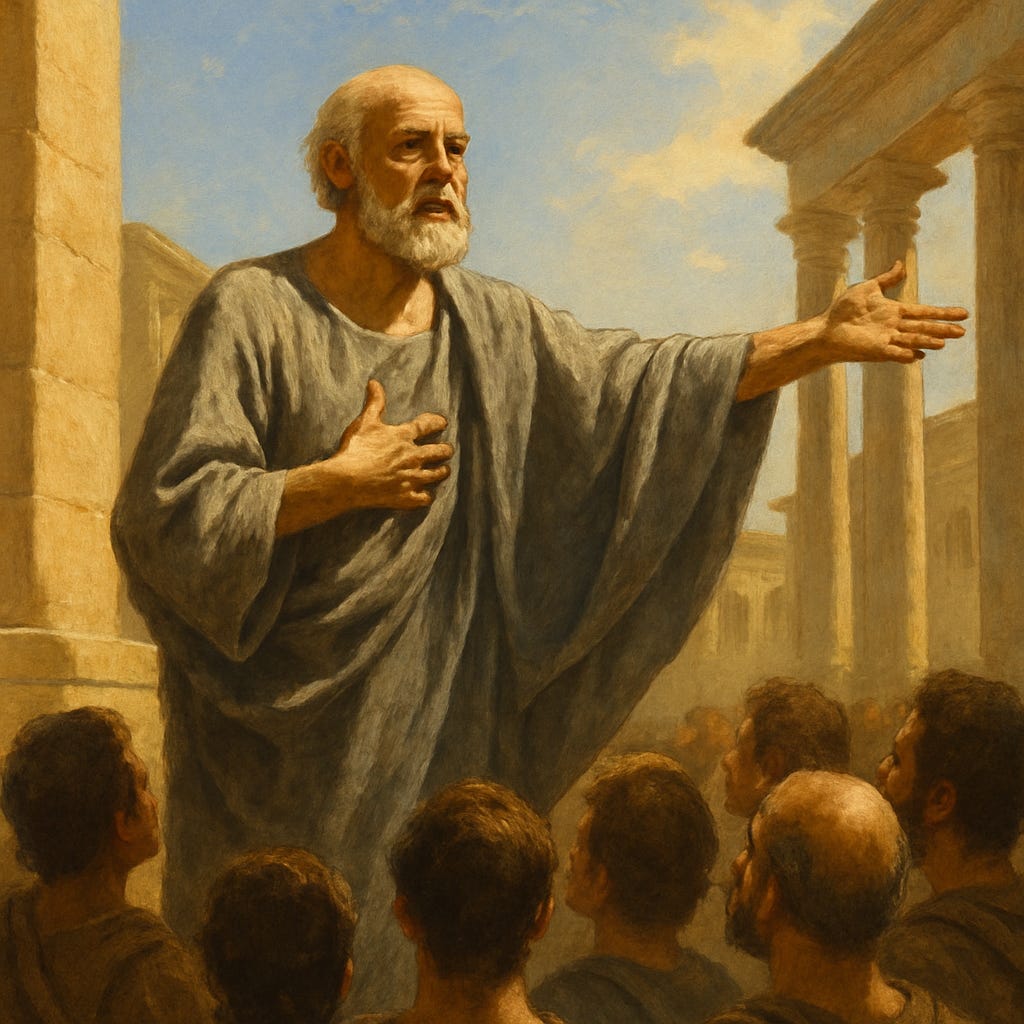Seasons of Persuasive Practice
Logos, Pathos, Mythos, Ethos are the rudimentary dimensions of subversive communication. Use the calendar for focused practice.
Winter, like logic, is cold and strips the world down to lines. But in Spring, something arouses us. We feel again, reanimated. By Summer, we know we can count on the sun to bring reliable heat and light. This season, like the sun’s predictable rise, mirrors integrity and authority. Then, in Autumn, we gather the fruits of the year, just as storytellers draw on the symbols, stories, and culture of a people, so we might feast.
Logos. (Winter) An appeal to logic and reason, using facts, evidence, and rational arguments to persuade.
Pathos. (Spring) An appeal to emotions, aiming to persuade by evoking feelings such as sympathy, anger, or joy in the audience.
Ethos. (Summer) An appeal to credibility, character, or authority, persuading through the trustworthiness and/or values of the speaker.
Mythos. (Autumn) An appeal to narrative, culture, or tradition, drawing on shared stories, symbols, or beliefs to create meaning and social connection.
When you speak or write, try to balance the four dimensions in a mutually constraining fashion.
Given your Mission, acts of persuasion are acts of subversion.
Balancing of the Four is crucial for effective communication, as each element complements the others. To compel them with words, they must trust you. But gaining others’ trust requires tempering the excesses of any one dimension.
Logos provides rational grounding, ensuring sound arguments, yet in isolation, it can feel detached, lacking the felt connection that pathos and mythos offer.
Pathos engages the audience emotionally, making the message resonate, but without logos, it risks being manipulative, unsubstantiated, or saccharine.
Ethos establishes credibility, lending weight to the message, but over-reliance can seem authoritarian without the balance of reason or emotional appeal.
Mythos weaves in cultural or narrative context, fostering shared identity and mythic truth. Still, unbalanced, it can veer into fantasy for its own sake, especially without logos or ethos as anchors.
When harmonized, these elements interlock and thus become more potent. Pathos avoids sentimentality, logos avoids sterility, mythos avoids fantasy, and ethos avoids arrogance.
When woven together, we create a foundation for subversive communication—what’s needed to build an empire of the mind.



